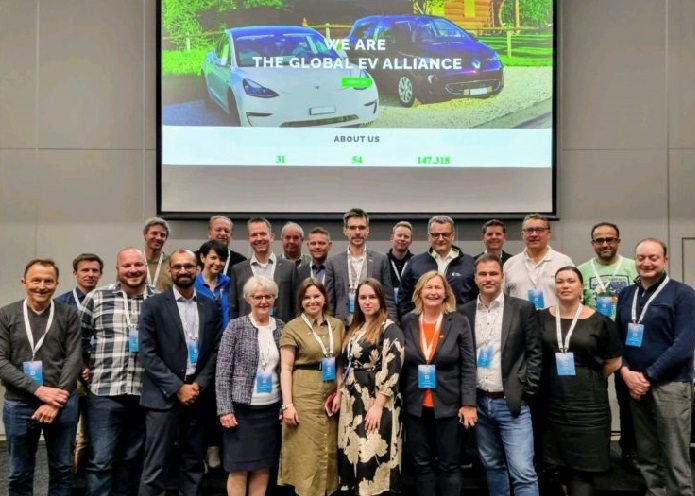To understand the main challenges facing electromobility worldwide, Mobility Portal Europe speaks with Petter Haugneland, Vice President of the Global EV Alliance and Assistant Secretary General of the Norwegian Electric Vehicle Association.
When asked about his opinion on the progress of the electromobility, Haugneland states: “I am concerned that the transition to EVs has become politicised in some countries.”

He continues, “Depending on which party you support, you’ll be either for or against electromobility. For example, in some countries like the United States, if you buy an electric car, you might be called a communist.“
Haugneland notes that the situation is very different in Norway.
In this Nordic country, “both the left and right of the political spectrum support electromobility.”
“They have different reasons for choosing EVs, whether environmental or economic, but all parties agree that electromobility is a good idea,” he adds.
The fact that electric vehicle policies are supported by all members of parliament ensures that even if there is a change of government, policies related to the sector will continue or at least won’t be abruptly discontinued.
This is important because, even if Norway achieves 100% of new car registrations being electric by 2025, this percentage will need to be maintained to replace all vehicles with zero-emission alternatives.
“EVs need to remain competitive in the coming years, and the Norwegian government supports this with the tax system,” explains Haugneland.
He adds, “It’s important not to change this system abruptly, but to have a long-term policy.”
According to Haugneland, another situation slowing the global transition to electromobility is the competition between China, Europe, and the US, and the trade barriers that arise as a result.
It’s worth mentioning that on 4 October 2023, the European Commission initiated an anti-subsidy investigation into battery electric vehicle imports originating from China.
After the investigation concluded that the cars were being subsidised by the Chinese government, and with the aim of protecting domestic production, the European Union (EU) imposed provisional tariffs on EV imports from the Asian giant in July.
This measure seems to have had an effect.
Recently, the China Chamber of Commerce informed the EU of a 30% drop in electric vehicle exports from the Asian giant to the EU in June, compared to figures from a year ago, with a total of 27,180 units sold.
According to the organisation, the imposition of tariffs by the European Commission has highlighted the “discontent and uncertainty” within the sector regarding the EU’s protectionist policies.
It is also worth mentioning that, with the same objective, the United States and Canada will take similar measures, announcing the imposition of a 100% tariff on the import of Chinese EVs.
Far from remaining impartial, Asian manufacturers are taking action by relocating part of their production to other countries.
For example, Xpeng Motors is seeking a manufacturing site in Europe to produce its electric cars, aiming to mitigate the impact of tariffs.
Meanwhile, SAIC Motor-CP, which produces under the MG brand, aims to be the first national electric vehicle manufacturer to export its units to untapped European markets.
In this regard, Suroj Sangsnit, Executive Vice President of SAIC Motor-CP, said that Thailand can seize this opportunity to become a manufacturing base for Chinese EVs for export to the old continent.
Finally, it is worth noting that Swedish electric vehicle manufacturer Polestar, majority-owned by Geely, has been producing its units in China and exporting them to foreign markets.
However, also to avoid tariffs, it has begun producing its Polestar 3 SUV in the Us. This model will be marketed to customers in both North America and Europe.
Regarding the third factor slowing the global transition to renewable and emission-free solutions, Haugneland mentions wars, as they cause a lack of resources, investments, and uncertainty.
“Electric vehicles are a good way to eliminate dependence on oil, which is causing not only environmental problems but also corruption, wars, and pollution,” he acknowledges.
“EVs are part of the solution,” he assures.

About the Global EV Alliance
The Global Alliance of EV Drivers’ Associations facilitates global collaboration on best practices, policies, education, and other initiatives related to electric vehicles.
“We have a monthly online meeting for members where we share our experiences and knowledge. We learn from each other and find inspiration,” says Haugneland.
The alliance consists of 61 grassroot non-profit organisations across 36 countries totaling over 323,000 individual EV drivers as members.







